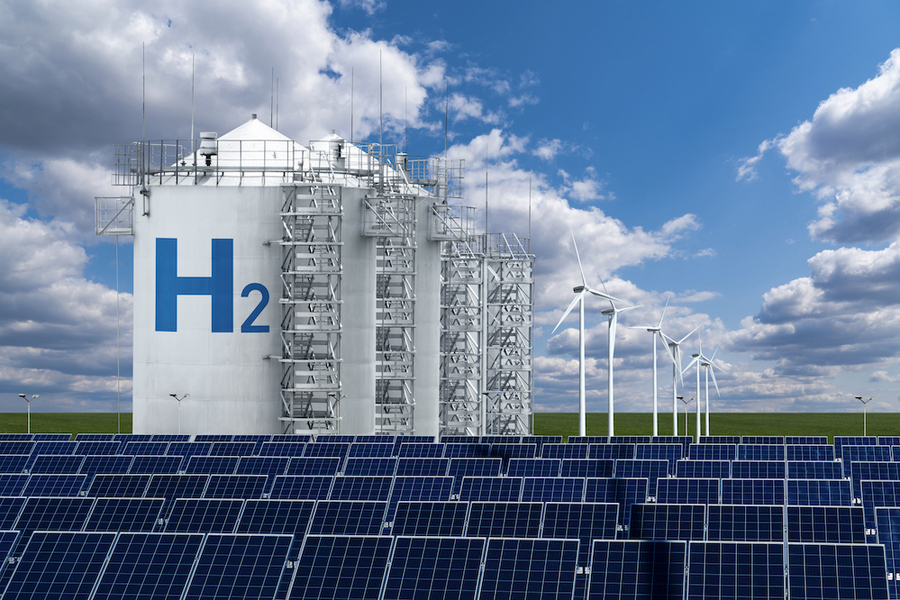Japan plans to invest $105 billion in hydrogen energy to combat carbon emissions.
According to a report by AP, the government aims to reach 12 million tons by 2040 by increasing the annual hydrogen supply by six times.[1]
The plan will allocate 15 trillion yen ($107 billion) from private and public sources, the funds are meant for developing hydrogen-related supply chains for the next 15 years.
Japan has formulated a decarbonization strategy centered around using clean coal, hydrogen, and nuclear energy to transition toward renewable energy sources.
The recent tensions caused by Russia’s actions in Ukraine have raised concerns over energy security worldwide, Japan’s dependency on hydrogen primarily stems from fossil fuel sources.
The updated plan delineates nine key priority areas, including advancing water electrolysis equipment and fuel storage batteries, they also aim to develop large-scale tankers for transporting hydrogen.
Chief Cabinet Secretary Hirokazu Matsuno highlighted the hydrogen industry’s potential for decarbonization, he also pointed out that it will simultaneously ensure a stable energy supply and foster economic growth.
Japan’s Transition to a “Hydrogen Society”
Japan aspires to transition into a “hydrogen society,” although the hydrogen industry is still nascent. Japan adopted a so-called “green transformation” plan in February.
The plan calls for promoting next-generation solar batteries, offshore wind power, and renewed use of nuclear energy.[2]
Further, at a hydrogen council meeting with industrial leaders last week, Prime Minister Fumio Kishida said Japan aims to achieve an “ Asian zero-emission community,” contributing Japanese technology in hydrogen, ammonia, and other decarbonization technologies.
“By setting an ambitious goal we aim to make our plans more predictable and encourage long-term investment in developing a large-scale hydrogen supply and demand,” Kishida said.
The government is currently crafting legislation to establish critical infrastructure and supply chains for the commercial utilization of pure hydrogen and ammonia as alternative sources of hydrogen.
Japan aims to reduce its carbon footprint significantly, and the substantial investment and commitment to hydrogen energy drive progress toward a more sustainable and environmentally friendly future.
Hydrogen energy is being considered a means to cut emissions due to its unique properties and potential environmental benefits and to tackle climate change.
By promoting the adoption of hydrogen energy, countries like Japan aim to accelerate the transition to a low-carbon economy.
It is also a way of mitigating the negative impacts of traditional energy sources on the environment.
References
- Jace Dela Cruz, ‘Japan Plans to Pour $105 Billion in Hydrogen Energy Projects to Cut Emissions’ Tech Times, 6 June 2023, https://www.techtimes.com/articles/292302/20230606/japan-plans-pour-105-billion-hydrogen-energy-emissions.htm[↩]
- Mari Yamaguchi, ‘Japan earmarks $107 billion for developing hydrogen energy to cut emissions, stabilize supplies’ AP News, 6 June 2023, https://apnews.com/article/japan-energy-hydrogen-climate-carbon-emission-7f5552cc387d7ad395980bc9bd5a934c[↩]





